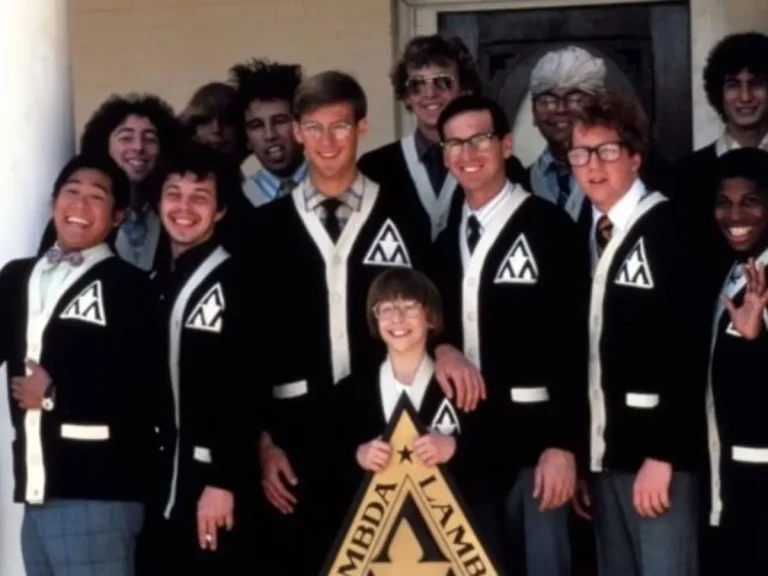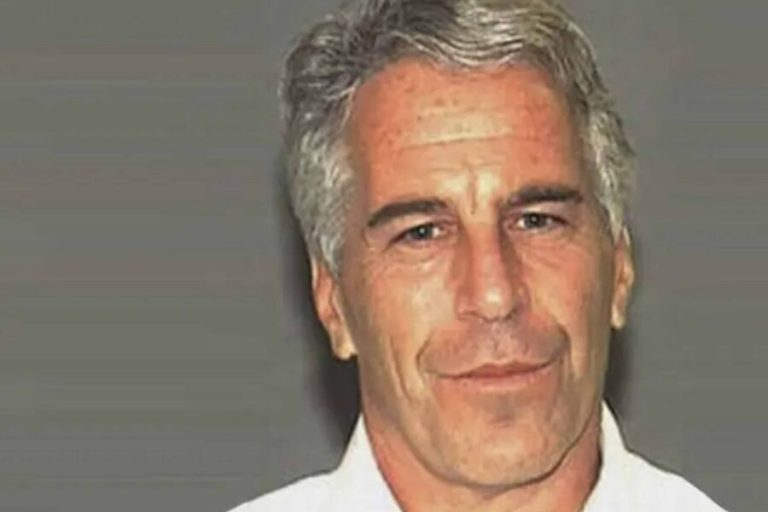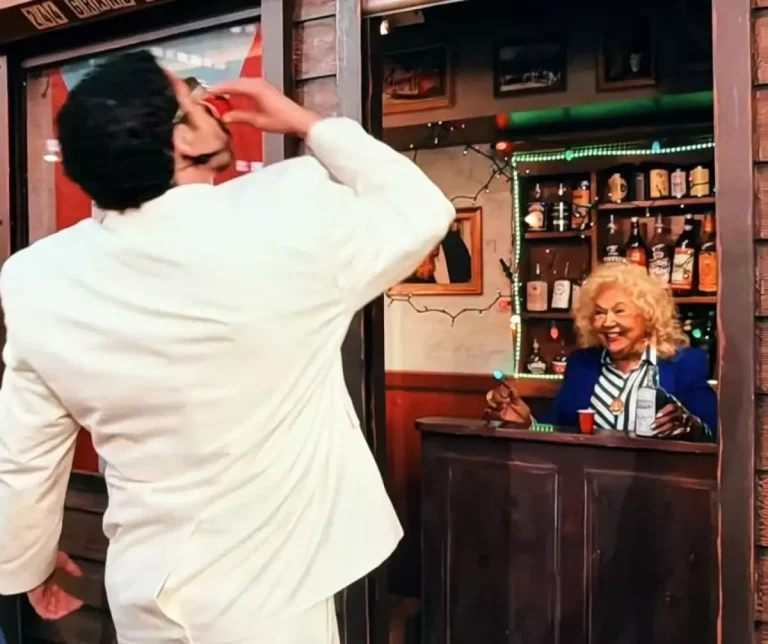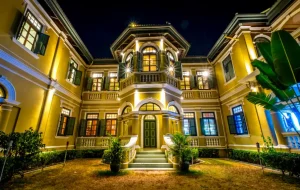A Star on the Red Carpet, A Voice in the Debate
Hollywood icon Angelina Jolie is known for commanding attention on any stage. At the San Sebastián Film Festival in Spain, she did so again — but this time, it was her words, not her fashion, that stunned the world.
While promoting her latest film Couture, Jolie addressed a pointed question about the state of free speech in America. Her reply was blunt, emotional, and deeply personal. She declared that she no longer “recognises” her own country, adding that she fears growing limits on expression.
Her statement immediately reverberated across social media, news outlets, and political forums, igniting a fiery debate about patriotism, celebrity activism, and America’s current cultural divide.
Jolie’s Stark Words: “I Don’t Recognise My Country”
During the press conference, a reporter asked Jolie what frightens her most as an American artist in today’s climate. Jolie paused, considered her words, and gave an answer that carried both weight and urgency:
“I love my country, but at this time, I don’t recognise my country. I’ve always lived internationally … Anything anywhere that divides or, of course, limits personal expressions and freedoms … I think is very dangerous.”
She stressed the seriousness of her statement, warning against speaking lightly in a period she described as “very heavy times.”
Her words echoed recent controversies, including ABC’s suspension of Jimmy Kimmel Live! after the comedian made politically charged comments. For many, her remarks captured a growing unease about censorship and corporate control over expression.
Social Media Firestorm
It didn’t take long for Jolie’s words to go viral. Supporters across X, Instagram, and TikTok flooded feeds with her quote, praising her for saying out loud what they feel.
One fan wrote: “Jolie said what many of us feel: this isn’t the country we grew up in.” Another added: “When America loses its voice, the world loses too. Thank you, Angelina.”
But critics were equally quick to pounce. Conservative commentators accused her of opportunism, pointing out her international lifestyle. One viral post read: “If you don’t recognise America, maybe stop cashing its checks.”
The clash underscored how celebrity statements often become cultural lightning rods, splitting audiences along political lines.
https://www.youtube.com/watch?v=oStgwob6V7A
Support, Criticism, and Nuance
Cultural analysts urged caution before dismissing Jolie’s comments as mere Hollywood grandstanding. They pointed to her long history of humanitarian work, from refugee advocacy to campaigns for women’s rights, as evidence of consistency.
“She’s speaking about freedom abroad, and now she’s speaking reluctantly about freedom at home,” one journalist noted.
Still, others argued her global fame shields her from the everyday challenges ordinary Americans face. To them, her comments risk sounding detached, even if her intentions are genuine.
A Broader Context: Free Speech in America
Jolie’s remarks arrive during a turbulent period for U.S. culture and politics. Heated debates over censorship, cancel culture, and media bias have divided Americans more sharply than ever.
The suspension of Jimmy Kimmel Live! added fuel to these debates, highlighting the power corporations hold over speech. Simultaneously, partisan rhetoric across both left and right has intensified, leaving little room for nuance.
Jolie’s decision to speak from an international stage — in Spain, rather than in Los Angeles or New York — gave her words even greater weight. Her statement wasn’t just commentary on America; it became a global observation of how the U.S. is now viewed abroad.
Personal Stakes for Jolie
Jolie’s critique of America isn’t just political — it’s personal. Earlier this year, she revealed she plans to move abroad permanently once her youngest children are grown. She cited privacy, safety, and freedom as key motivations.
Her life as a mother also shaped her remarks. She has spoken often about raising her children with global awareness and encouraging them to think critically about freedom and responsibility. Her concerns about America appear tied to the future they will inherit.
Global Stage, Global Reactions
The San Sebastián Film Festival is one of Europe’s most respected cultural gatherings, giving Jolie’s words an amplified audience. Speaking outside of America allowed her remarks to resonate internationally, highlighting how U.S. internal struggles are closely watched by the world.
European media framed her comments as part of a larger debate on democracy and division. British outlets highlighted her phrase “I don’t recognise my country,” while Spanish commentators praised her courage to confront uncomfortable truths.
Cultural and Political Shockwaves
Back home, Jolie’s statement fueled think pieces, opinion columns, and endless commentary.
-
The Daily Beast described her intervention as “sounding the alarm on dangerous division.”
-
The Guardian emphasized her stark phrasing and its potential cultural impact.
-
Pro-Trump outlets, however, dismissed her as “out of touch.”
This polarization mirrors the very divisions Jolie warned about. Her words became both a call for unity and, paradoxically, another wedge in America’s fractured discourse.
Hollywood and the Tradition of Activism
Jolie isn’t the first Hollywood figure to criticize America from a global stage. Actors from Marlon Brando to Jane Fonda have used fame to spotlight political or cultural issues. Some were celebrated for their courage; others faced lasting backlash.
Jolie’s global humanitarian work may protect her from some of the harshest criticism. Still, her bluntness at San Sebastián ensures she will face scrutiny from those who view celebrity activism as self-indulgent.
What Comes Next?
The lasting impact of Jolie’s words remains uncertain. Will they fade into the endless churn of celebrity soundbites? Or will they spark meaningful conversations about freedom, division, and what it means to be American in 2025?
Her timing — during a major cultural festival, and in the midst of an American media censorship controversy — makes it harder to dismiss her remarks as casual.
As one cultural analyst put it: “She didn’t just talk about freedom. She warned us. Whether we listen or not is the real question.”
Conclusion: A Heavy Message in Glamorous Surroundings
Angelina Jolie may have stunned on the red carpet, but it was her voice, not her dress, that carried the day. Her declaration — “I don’t recognise my country” — is both deeply personal and politically charged.
For supporters, she is a truth-teller willing to risk backlash. For critics, she is another out-of-touch celebrity. For America, her words are yet another reflection of a nation wrestling with its identity.
The San Sebastián Film Festival will be remembered not just for the films it showcased, but for the cultural tremor Jolie sent rippling across the Atlantic.

Sarah Mitchell is a bestselling novelist recognized for her insightful and emotionally resonant stories that explore the complexities of human relationships. Originally from Denver, Colorado, Sarah grew up in a family of teachers who nurtured her curiosity and love for storytelling. She studied psychology at Stanford University, where she became fascinated by the intricacies of human behavior—an interest that would later shape her writing career. Sarah’s novels are praised for their nuanced characters, intricate plots, and ability to capture the subtle tensions that define love, friendship, and family ties. Her breakthrough novel, The Spaces Between Us, became an instant bestseller, lauded for its honest portrayal of strained family relationships and the fragile bonds that hold people together. Since then, she has published several works that continue to captivate audiences around the world. Outside of her writing career, Sarah is passionate about mental health advocacy and often partners with organizations to promote awareness and support for those struggling with emotional well-being. Her personal life is quieter—she enjoys hiking in the Colorado mountains, practicing yoga, and spending time with close friends. With each new book, Sarah Mitchell cements her reputation as a writer who illuminates the beauty and struggles of human connection.









